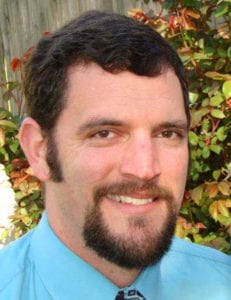By Alex Petroski
Candidates for Port Jefferson School District’s board of education have thrown themselves into the world of public service at a tumultuous time for the district and education more broadly. To better inform voters about the positions of the six candidates vying for three trustee seats prior to heading to the polls May 15, each was asked to provide answers to the same questions.
Candidate Mia Farina answered the questions during a phone interview while the other five chose to respond via email. Their answers to the questions, or answers in part, are provided below in alphabetical order by the candidate’s last name.
If the district loses revenue as a result of a LIPA settlement, how can the BOE scale down the budget without doing too much harm to existing programs?
There is the possibility of losing property tax revenue as a legal battle plays out between Port Jefferson Village, the school district and Long Island Power Authority, which has a plant in the village. The utility company contends Town of Brookhaven overassessed and is seeking to reduce the assessment. The district receives about half of the revenue in its budget from taxes paid by LIPA based on the plant’s assessment.
The village and Brookhaven have publicly stated a settlement is on the horizon, the result of which will likely reduce the plant’s assessment, though few details have been shared. The district has publicized a plan for the budget should an official settlement be reached in time to impact the 2018-19 school year, with
proposed cuts to instrument rental availability, textbooks, athletic teams, clubs and overnight field trips, to name a few.
Budget highlights
- $44,945,812 for total operating budget
- 3.72 percent increase in 2018-19 compared to current year
- Additional expenses would be covered with 2.27 percent tax levy increase and 2.23 percent state aid increase
- All programs rolled over from current year in next year’s budget
- Expense increase largely due to contractual raises and increasing health insurance costs
- Second proposition on ballot to release capital reserves for roof repairs
- Vote May 15 at Earl L. Vandermeulen High School
Ryan Biedenkapp: “There will need to be a scaling down of nonmandated costs by looking to trim where student participation fails to justify the cost. An increase in taxes combined with increased community participation in seeking alternative funding sources will also be required. Maintaining the academic integrity of Port Jefferson schools should be the guiding principle when deciding where reductions will occur.”
Mia Farina: “There’s actually grants out there — privately — [like] music grants that actually [pay for] musical instruments and pay for the maintenance of those instruments, so that alone would cover that lost revenue. I went to public school, and we did fundraisers. We could sponsor events. We possibly may lose revenue. If we could do anything to bring that back by having the community involved … ”
Jason Kronberg: “Depending on how severe the loss of revenue is, I’d like to hold forums with the community to come up with potential cuts to the budget.”
René Tidwell: “As a member of the BOE, I will work diligently to ensure the high standards the district has set for its instructional programs remain in place. I believe the district needs to form a Citizens Advisory Committee immediately, with the objective to assess the impact of the loss of LIPA revenue under various scenarios (such as 50 percent reduction of revenue, reduction on assessment or reduction on payments, etc.).”
Tracy Zamek: “The board can scale down the budget by looking at budget trends, participation rates, enrollment patterns and non-mandated costs. However, a combination of program adjustments and increased taxes will be necessary in order to absorb the significant loss of revenue. The community will once again be asked to provide input through a values survey and community forum response initiative. Understandably, not everyone is going to agree on every priority, but the most important thing to remember is our students come first.”
Ryan Walker: “Several suggestions that have been successful in other districts come to mind, such as encouraging increased philanthropic contributions, seeking out unused state and federal financial aid
opportunities and grant writing. The first thing to consider is what must the district have in order to maintain the high quality of education that makes families chose to move to Port Jefferson.”
Do you believe security officers and/or educators should be armed on school campuses?
Security in schools is never far from district’s and parent’s minds, though this has been particularly true in the wake of the latest mass school shooting in Parkland, Florida, in February, which left 17 dead. Neighboring districts have moved to employ armed security personnel, while some participated in the national discourse through walkouts.
Biedenkapp: “I don’t believe in arming teachers, ever. The idea of having an armed security person inside our schools is one that gives me pause. The retention of a single, possibly two, retired officers, who also was/were licensed air marshal that was carrying [a] concealed [weapon] at the front of the school at the vestibule or outside the school on the perimeter is something that I would be inclined to support.”
Farina: “Absolutely not. Their job is to educate, not to have the responsibility of a [carrying] firearms. Security officers, I believe, should be armed if they’re fully capable of being armed, meaning training is a huge priority.”
Kronberg: “Weapons-trained security can be an essential layer of protection for our schools. There is no definitive study on the effectiveness of this form of protection, but in my opinion it is something, with proper training, that can help prevent and deter violence. Arming teachers in schools is an irresponsible idea.”
Tidwell: “I believe the answer to this question is best answered by the community itself, and as a BOE member, I would recommend a town hall meeting to listen to the community’s ideas and concerns regarding security for our facilities.”
Potential cuts pending LIPA settlement
- Reduction of rental of music instruments for students ($12,000) Reduction in equipment ($18,000)
- Reduction of textbooks ($15,000)
- Reduction of 6 budgeted sports teams based upon student interest ($37,000)
- Reduction of 6 extra curricular clubs based upon student interest ($18,000) Elimination of overnight/long distance field trips (Busing/Chaperons) ($18,000)
- Reduction in Board of Education organizational dues ($2,000)
- Reduction in District Community Printing/Mailings (Newsletters/Calendars) ($10,000)
Walker: “I worked in two school districts as a nationally certified School Resource Officer for the New York State Police Department. At first, residents were hesitant to have a police officer in full uniform, which included a gun, in the schools. Resident hesitation swiftly dissipated as I worked to build a positive collaborative relationship with students, families, administration, teachers and staff.”
Zamek: “I absolutely do not support the idea of having teachers armed in schools. Guns do not belong inside our schools. However, I would welcome a village and community discussion about having professional armed security guards on the outside of schools, especially at arrival [and] dismissal and on the perimeter of fields during recess.”
Do you think BOE communication and transparency with taxpayers can be improved, and if so, how would you do it?
The district and board have been criticized by members of the community for a lack of transparency and for their communication methods on issues, like how the district informed parents of a social media threat made by a student in February long after it was received and via email instead of a robocall.
Biedenkapp: “We can absolutely improve communication with all stakeholders, as well as our transparency. With respect to the taxpayers the district Facebook page should be utilized to give a brief synopsis of each BOE meeting, along with the live video of the meeting and quick links to any pertinent web pages. The school’s web page is rather cumbersome, but design of a new website would be fiscally irresponsible at this time. Residents should have an ability to have their phone number added to the school robocall list.”
Farina: “I think there’s always room for improvement in any type of communication whatsoever. I haven’t really had an issue [with] school communication because I’m very active. … I would ask the community for ideas on how they would want to be notified. Who’s not getting information that wants information? How do you get your information?”
Kronberg: “Communication between the board and community, although strong in many ways, can always be improved. I’m excited for the ‘super team’ approach arrived at by the superintendent for this fall [which brings community members from different sectors together to come up with ideas to solve problems]. While the meetings are online and available, it may be a good idea to provide a question and answer email session with board members, where community members can write in and receive answers to specific questions.”
Tidwell: “I believe there are significant gaps in the BOE’s communication process with all the district’s stakeholders. I would establish a telephone communication protocol that includes all district taxpayers — not just the parents of children attending the district’s schools. I would ensure that taxpayers who currently do not utilize the internet or social media are informed of upcoming BOE events in a timely manner. I propose utilizing cellphone alert applications to remind residents of upcoming meetings, important announcements, etc., all of which could have ‘opt-in’ or ‘opt-out’ choices for all residents.”
Walker: “The current way of disseminating information is adequate for those with children attending schools in the district. However, everyone else must seek out information by checking the district’s web page on a daily basis to make sure they didn’t miss anything important. Printed newsletter mailings to residents are infrequent, costly and not always timely. All residents should have an opportunity to register their email addresses with the school to have the same information sent to them as parents of school children. Board members should make themselves more available to attend public functions, have face-to-face interactions with residents.”
Zamek: “There needs to be a greater emphasis on enrolling every community member on our connect-ed phone, text and email system. I have already started to improve communication between the school and village officials by creating a direct line of communication between the two offices. The school now informs the mayor’s office monthly concerning school board meeting dates and times and provides an agenda.”

































